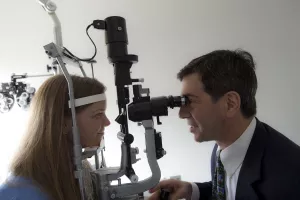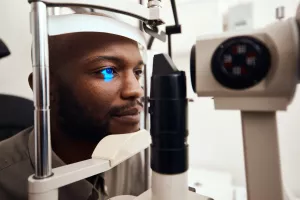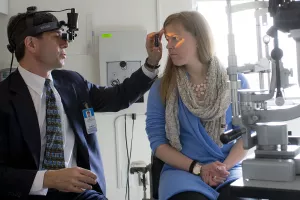Our ophthalmologists are distinguished clinicians, educators and researchers who cover all angles of visual health, from routine care to complex cases. Together, we're building better ophthalmic care for our patients by keeping up with the latest advances in ophthalmology.
Our department features innovative ophthalmic technology to complement our doctors' expertise, putting us on par with the most advanced eye centers anywhere. Sophisticated testing such as digital angiography, color Doppler imaging and ultrasound biomicroscopy help us make even the most difficult diagnoses. On a larger scale, our laser vision technology's range of therapeutic capabilities is matched by only a few ophthalmic centers worldwide.


